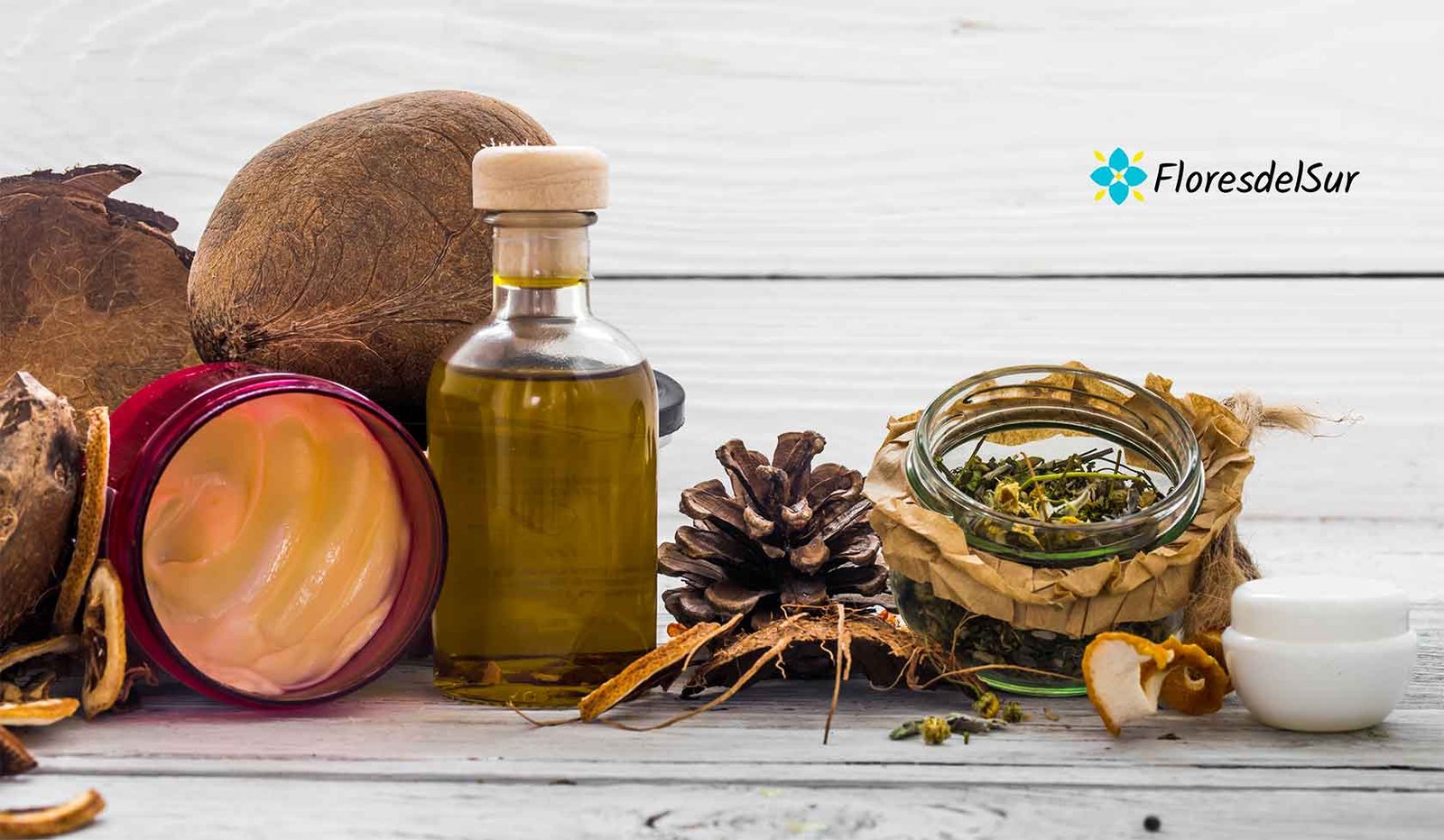Natural Vegetable Oils: The Best Allies for Your Skin
At Floresdelsur, we believe in conscious cosmetics, which is why we work with 100% natural vegetable oils that care for your skin in a respectful and effective way. But did you know that each oil has unique properties?
What are vegetable oils and why should you use them?
Vegetable oils are fatty extracts obtained mainly from seeds, fruits, or flowers. They are used in cosmetics due to their great affinity with human skin: they provide essential fatty acids, vitamins, and antioxidants without the need for synthetic ingredients.
Key advantages:
- Deep nourishment without clogging pores
- Natural regenerative action
- Free of chemicals and preservatives
- Suitable for all skin types
Top 5 must-have vegetable oils
1. Jojoba Oil
Regulates sebum, hydrates without leaving a greasy feel, and balances combination or acne-prone skin.
2. Rosehip Oil
Ideal for mature or blemished skin. Stimulates cell regeneration and improves skin tone.
3. Argan Oil
Antioxidant, moisturizing, and anti-aging. Rich in vitamin E, perfect for dry or sun-exposed skin.
4. Sweet Almond Oil
A classic in natural cosmetics. Soothes sensitive skin, hydrates, and softens.
5. Virgin Coconut Oil
Repairs, softens, and provides an irresistible tropical aroma. Multifunctional: suitable for body, hair, and face.
How to apply vegetable oils correctly
- On damp skin to enhance absorption
- As the final step in your nighttime skincare routine
- Pure or mixed with your moisturizer
Frequently Asked Questions (FAQ)
- Can I use vegetable oil if I have oily or acne-prone skin?
- Yes, and it’s actually highly recommended. Although it may seem counterintuitive, certain oils such as jojoba oil have a molecular structure very similar to human sebum, which helps naturally balance its production. Using the right oil can reduce acne breakouts, calm inflammation, and improve skin texture without clogging pores.
- Are vegetable oils safe during pregnancy or for babies?
- In general, pure, cold-pressed, fragrance-free vegetable oils are safe during pregnancy and for babies’ skin. Sweet almond oil is one of the most commonly used for moisturizing the belly during pregnancy or for baby massages. However, it is always recommended to do a small patch test on a reduced area before regular use and to consult with a pediatrician or dermatologist if in doubt.
- What is the difference between a vegetable oil and an essential oil?
- Vegetable oils (such as argan, coconut, or rosehip) are fatty extracts that hydrate, nourish, and protect the skin. They can be used directly. On the other hand, essential oils (such as lavender or tea tree) are volatile concentrates with therapeutic or aromatic purposes and should always be diluted in a vegetable oil before applying to the skin, as they can be irritating or even toxic in high doses.
- Can I use vegetable oils instead of a moisturizer?
- Yes, especially if you are looking for more natural and deep hydration. Oils act as emollients and seal moisture into the skin. It is recommended to apply them on slightly damp skin for better absorption. You can also mix them with your usual cream to enhance its effects. They are an excellent option for nighttime routines or dehydrated skin.
- What is the best vegetable oil for sensitive skin?
- Sweet almond oil is one of the gentlest and most effective options for sensitive skin prone to redness or irritation. You can also consider calendula oil or oat oil for their soothing and anti-inflammatory properties. In all cases, it is crucial that the oil is organic, free from fragrances and preservatives.
- Do vegetable oils have an expiration date?
- Yes. Although they do not expire like perishable foods, over time they can oxidize and lose their properties. Most vegetable oils have a shelf life of 6 to 12 months after opening. Store them in a cool, dark, and tightly closed place. Some, like jojoba oil, have a longer shelf life due to their natural chemical stability.
- Can I use vegetable oils if I have rosacea or dermatitis?
- Yes, but you should choose carefully. Oils such as calendula, oat, or evening primrose have anti-inflammatory and soothing properties that can help reduce redness and irritation. Avoid oils with fragrances or that are comedogenic. And when in doubt, consult a dermatologist before adding them to your routine.
- Are they also good for hair?
- Absolutely. Many vegetable oils such as coconut, argan, or castor are used as hair masks, split-end sealers, or moisturizing treatments. You can apply them from mid-lengths to ends before washing or leave them overnight for a deep treatment. They also help control frizz and improve natural shine.
Conclusion
Including vegetable oils in your daily routine is an effective, natural, and sustainable way to care for your skin. At Floresdelsur, we select only certified, cold-pressed oils without additives. Because your skin deserves the best.
Discover our oil collection and feel the difference from the very first application.

